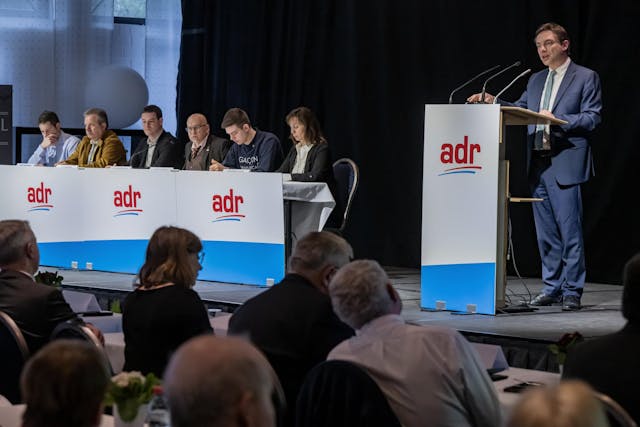More than 60% of Luxembourg wineries have no successors

Vinarija Perak, Unsplash
On 21 July 2025, the key meeting "Wäibaudësch" took place at Senningen Castle, bringing together representatives from the wine, horticulture and agriculture sectors. The Minister of Agriculture, Food and Wine, Martine Hansen, with the participation of the Minister of Finance, Gilles Roth, presented interim steps to address several pressing issues in the sector, from the demographic crisis to water scarcity.
The results of a survey conducted by the Institut viti-vinicole (IVV) show a worrying picture: more than half of the estates run by winemakers over 50 years old do not have clear plans for the transfer of the business. In some cases, this is due to legal difficulties, lack of successors, administrative barriers and economic instability.
The young winemakers who attended the meeting openly voiced their concerns, from the lack of seasonal housing to difficulties with registration and access to subsidies. Martine Hansen recognised their concerns and promised the launch of a generational renewal action plan, which will include the creation of a one-stop shop for young farmers wishing to start or continue their winemaking activities.
One of the key challenges was abandoned vineyards, which represent not only an agrarian but also a sanitary threat. Among the proposed solutions:
- launching the "Rebflächenbörse & Brachflächenmanagement" project, which promotes land redistribution;
- increasing subsidies for vineyard restructuring and conversion;
- the possibility of introducing a conversion premium, including for the conversion of vineyards to orchards;
- A two-year award for vineyard sanitation;
- consideration of mandatory grubbing for areas not in good condition.
According to the new European Wine Package, winemakers have the opportunity to legally produce and promote de-alcoholised and partially de-alcoholised wines. Finance Minister Gilles Roth expressed his support for this direction, noting that such products promote more responsible consumption and will be accompanied by tax incentives.
Fruit and vegetable producers raised the issue of access to water: lack of irrigation infrastructure jeopardises the future of local crops. Participants proposed to hold a separate meeting with the participation of all stakeholders to consider the establishment of a water storage and distribution system for agriculture.
In addition, a reform of the Winemakers' Solidarity Fund is planned to bring it in line with modern and European standards.
The Wäibaudësch meeting not only outlined the challenges facing the wine sector, but also provided a platform for developing systemic solutions. As Minister Hansen stressed, an open dialogue between the state and the professional community is a key tool in building a sustainable future for Luxembourg's wine industry.





